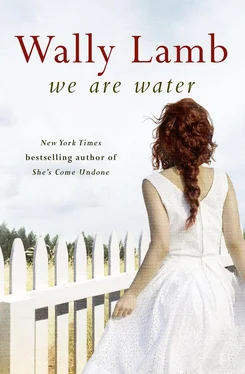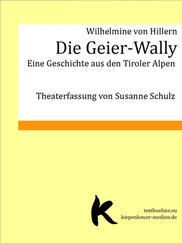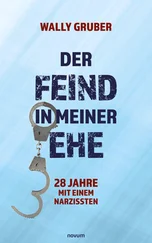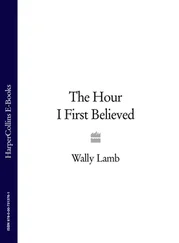No. Correction: I was a psychologist. When my license came up for renewal last month, I let the date go by. I go back and forth about whether I should have. But what’s done is done …
It was hard for Annie back then, I know. As the house-bound wife of a busy professional, she carried most of the burden of child care, cleaning, budgeting. She had to grab a little time here and there to work on her art. When I was down there in Pennsylvania with my mother, she hired some older woman to babysit a couple hours a day, and I applauded her for that. Told her it was a good idea. But that turned out to be a fiasco when the sitter forgot to lock the basement door and Andrew tumbled halfway down the stairs. Annie’d had to take him to the emergency room for stitches in his forehead and be grilled by the ER doc as if she were a child abuse suspect. She decided it wasn’t worth it. Told the sitter not to come back. And when I got back, mentioned casually that Thea had come to the funeral, Annie’d reacted like a crazy woman. Like some spark between my ex-girlfriend and me had been reignited when the opposite was true. Seeing Thea again had been like a refresher course in why I’d ended it with her.
I’d have liked to help her out more, but the domestic imbalance was unavoidable. Counseling Services was understaffed, we clinicians seriously overworked. Students who wanted to see one of us had to put their names on a list and then wait for an appointment, sometimes as long as two or three weeks. Besides our caseloads, we counselors supervised the clinical practicums of the predoctoral students, got saddled with committee work, ran groups. In addition to all that, it fell on us to plan and implement Suicide Awareness Week, HIV Prevention Week, Alcohol Awareness Week, and so on. Most weekdays, I left for work before 7:00 A.M.—early morning was the best time to catch up on paperwork—and didn’t get home most nights until six or after. On the weekends, I could help out more. Take the twins to the park, fix a cabinet door or rake leaves, make a Saturday night supper while she went off to scavenge. Saturday was our night for sex, too—a standing appointment unless one or both of the twins was up, or one of us was too exhausted for intimacy. Sometimes an extra hour of sleep seemed sexier than having sex. But weekdays? Forget it. I’d get home and my dinner would be sitting Saran-wrapped on top of the microwave, the twins would be asleep in their cribs, and Annie would be down there, creating her 3-D collages amid the basement noises, one ear cocked toward the baby monitor upstairs …
Okay, here we go. The traffic’s finally started to move again. Passing that camper, I put on my directional signal and jockey myself in front of them. Let Mr. and Mrs. Big-Ass Camper stare at my bumper stickers: DISSENT IS PATRIOTIC, TOO and OBAMA/BIDEN ’08 …
Annie had been creating in basement obscurity for three or four years when I urged her to take a risk and exhibit her Buckingham Palace Confidential assemblages at the annual outdoor art show in Mystic. At first she resisted the idea, arguing that her kind of work wasn’t what those big summertime crowds would be interested in. But I kept nudging her until, reluctantly, she changed her mind and reserved herself a space. All that weekend, people paused, smiled, and snickered at Annie’s creations and then moved on to the “real” art: fruit in a bowl, seascapes. She had priced her pieces modestly—fifty dollars for the smaller assemblages, a hundred for the larger and more elaborate ones. She sold nothing. But to the surprise of many—and to the disgruntlement of the Mystic Art Association’s watercolorists and lighthouse painters—the judge awarded the Best in Show ribbon to Elizabeth Burns the Rice-A-Roni! What was that guy’s name? The judge? He’d been something of a big-deal artist himself back in the day, I remember Annie telling me. Italian guy, little pencil-thin mustache. He and Annie stayed in touch after she got that Best in Show. He must be dead by now—he was already up there back then—but I bet he’d be pleased to know where Annie’s art has taken her.
Along with the five-hundred-dollar prize money Annie got from the Mystic show, she was offered a one-woman show at the Hygienic Restaurant in New London. The Hygienic had long since stopped serving food, but it had become a kind of retro coffee house—a haven for poets, interpretive dancers, klezmer bands—alternative artists of all kinds, and their equally alternative admirers. Until Annie’s opening, I had never seen such a convergence of pierced, tattooed, and purple-haired people. Annie looked adorable that night in her floral dress and purple leggings, that big bow in her hair. “Oh, thank you so much … You do? Really? Oh, my God,” she’d respond to those who approached her to say that they loved her work or wanted to buy it. I was so proud of her that night—so happy to see her on the receiving end of some artistic appreciation, and almost four hundred dollars in sales. I knew more about psychology than I did about art, but I was becoming convinced that Annie was more talented than she or I had realized.
Her modesty about her accomplishments and her natural shyness were a big part of her charm that night at the Hygienic. Annie’s brother Donald and his wife Mimsy had taken the twins for the night—their first sleepover. I’d snuck a bottle of champagne and a half-dozen chocolate-covered strawberries in the fridge before Annie and I left for the opening, and when we got home, we got into bed, drank, ate, and made love. “Good god, I’m crazy about you,” I declared after we were both spent and sweaty. “Love you, too,” she murmured back. If you had told me that night that, two decades later, Annie would leave me for a woman, I would have thought you were crazy … Agnello: that was that judge’s name. Mr. Agnello … Had there been signs all along that she might be bisexual? Cues that I’d missed right from the beginning? …
Annie’s Hygienic show caught the interest of a Connecticut magazine features writer who drove out to our house and interviewed Annie about her work. She’d brought along a photographer, so there was a photo shoot, too. I was happy for Annie. One door kept opening onto another door, and she deserved that. And I guess this was crass of me, but the fact that people had actually begun paying her for her work somehow, in my mind, legitimized her efforts. This was a career, not an emotional disorder. I should stop playing psych detective and just relax . Celebrate her accomplishments instead of stewing about her creative process. She worked so hard and with such dedication down there in our basement, to the soundtrack of the furnace’s drone and the washing machine’s agitation. Good for her!
But until that Connecticut magazine article came out, I hadn’t realized the extent to which agitation fueled Annie’s art. Eventually it dawned on me that her “no trespassing” rule had been my escape hatch, too. I’d been allowed the luxury of assuming that The Dancing Scissors , The Cowgirls’ Revolt , and Buckingham Palace Confidential were playful. Satirical. Proof that my intense and sometimes morose wife had a lighter side, too. But in “Annie Oh’s Angry Art,” the writer said that my wife’s compositions emerged from “the blast furnace of her pent-up rage.” That they were “howls of protest against a suffocating middle-class domesticity” and the many ways in which society “tethers women to the mundane.” The mundane? Had Annie been referring to Rice-A-Roni or me? Was Diana’s rejection of Charles in favor of Magic Johnson metaphorical? The UPS driver who made deliveries to our house was a good-looking young black guy. Reggie, his name was. Someone she knew from way back, she said. Twice I’d gotten home from work a little early and found the two of them chatting at the front door. I couldn’t quite imagine that she’d cheat on me, but was I being naïve? The scientist in me advised objectivity, but the husband in me had just been put on alert.
Читать дальше












